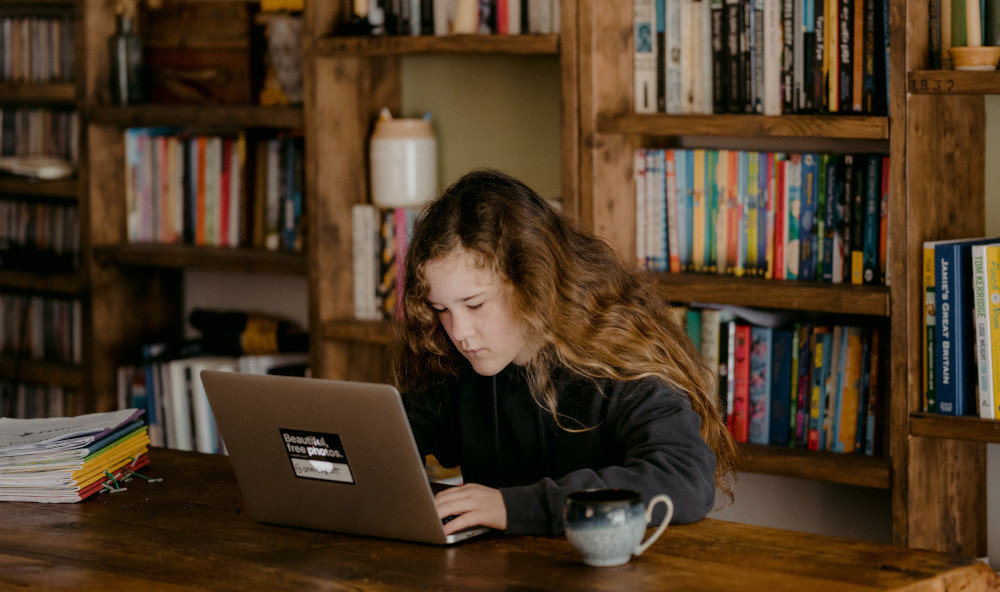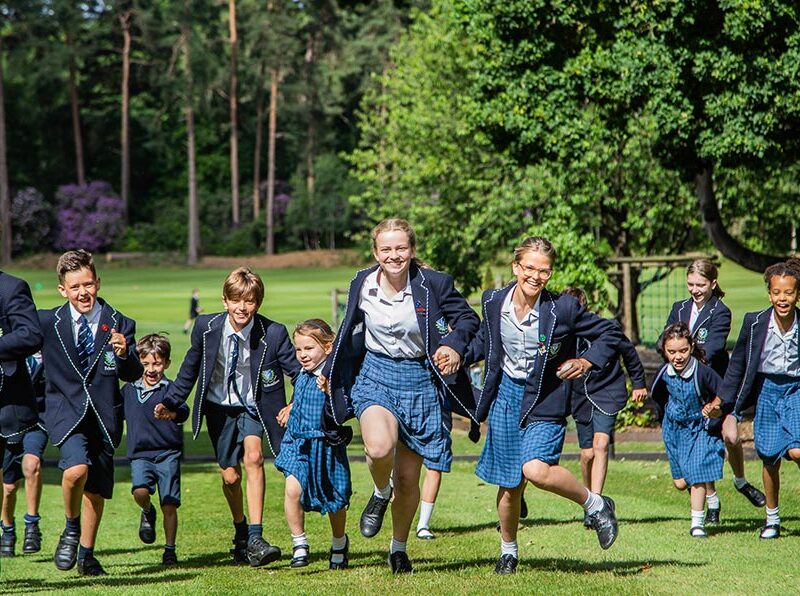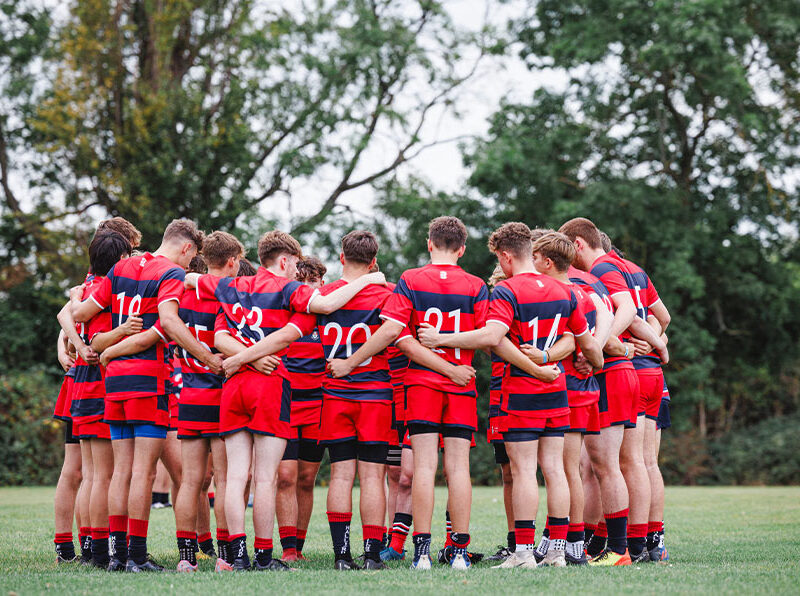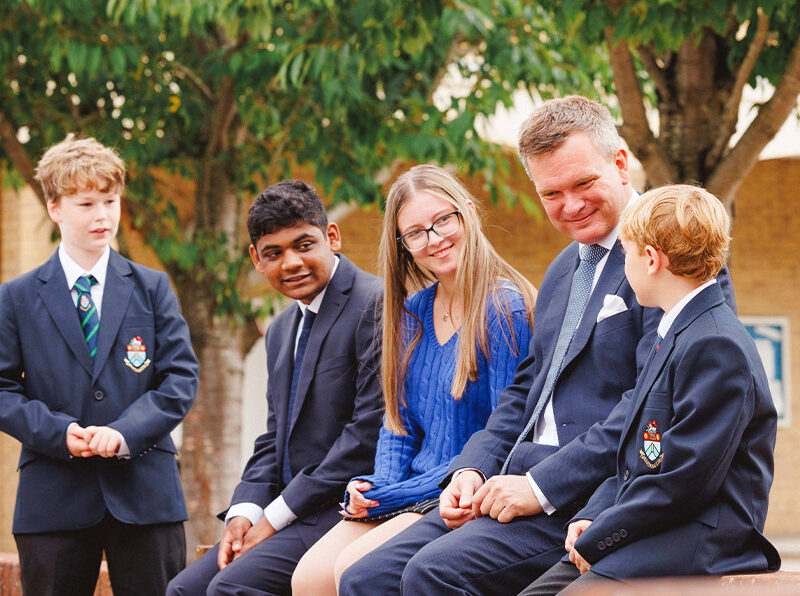
THE CHANGING LANDSCAPE OF LEARNING
The Changing Landscape Of Learning
When the pandemic hit, new solutions came to the fore to deliver education. Here’s how our local schools are taking these innovations into the future…
In March, the unthinkable happened. Schools had to shut their gates to limit the spread of Covid-19: parents found themselves having to become homeschoolers overnight, teachers had to adapt within days to deliver lessons virtually, and children had to master more self-directed learning than ever before. But, while it brought many challenges, out of the crisis came new and innovative approaches to education.
Parkside prep school, near Cobham, looked at how to continue its lessons remotely, not only in academic subjects but also those that encourage creativity and physical activity. Prep school classes included drama, food tech, Forest School, sport and humanities, alongside core academic subjects; with assignments set and submitted via Edmodo (an academic virtual community similar to Facebook). Individual learning packs were also printed, collated and collected weekly by parents at the ‘drive thru’ collection point, so families could plan and prepare for the week ahead. Weekly HIIT and cricket sessions were delivered alongside yoga and football via YouTube. Pupils were also encouraged to help the wider community, with projects such as using the resources they had to produce PPE equipment.
Wimbledon’s The Study Prep offered pupils academic form teaching via Zoom and Google Classroom while specialist lessons like music, language and ballet were able to continue via Zoom, and there was even a virtual Sports’ Day and a filmed socially distanced production of Grease.
When schools shut, one of the big challenges was the loss of routine, and social isolation away from peers. Newland House School in Twickenham had a big focus on these aspects, with its home learning programme ensuring that children and families had a sense of routine, maintained familiarity with school life and had social interaction with classmates and teachers. It has remotely hosted school assemblies, Easter parties, sports challenges, story time and virtual concerts, helping to foster the sense of belonging. Says head, Chris Skelton: “One of the most surprising benefits of remote learning was how much form-time, usually seen as a routine part of the school day, became much more valuable, providing a sociable and entertaining start to the day where teachers and children shared lockdown stories, hobbies and interests. Similarly, assemblies took on more of a community role, and we enjoyed hearing parents singing along with their children and being part of the various initiatives that we launched such as our Silver Letter campaign where children sent letters to vulnerable members within our local area.” Every child in Year 5 upwards has a personal school iPad and was already conversant with digital learning. The school combined ‘live teaching’ through webinars, supplemented by flexible recorded lessons, resources and activities.
This flexibility has been crucial so that parents could balance working from home with supporting their children. At Holy Cross prep in Coombe, prior to school closures, computing lessons took place from the Early Years stage, while older children were already using Microsoft Teams in class and for homework tasks. Sarah Hair, head, notes: “Initially there was a period of readjustment, such as reorganising teaching timetables, finding new ways to share assemblies and ensuring every child had an electronic device, but it didn’t take long for home learning to become part of ‘lockdown life’. We worked in partnership with parents – collaboration was key as they learnt to juggle home working and home schooling. Our online educational provision was extremely flexible and resources have been available 24/7.”
Putney High School had technology firmly embedded both in lessons and learning, in the classroom and remotely so it was in a strong position. But it has also learned from what it has found to be a positive experience. Says head Suzie Longstaff: “Teachers and students have been incredibly innovative in their approach to lockdown learning, staying connected and keeping up student teacher interaction. Lots of helpful feedback from students, teachers and parents helped to develop really effective online teaching methods.” The school says that the lockdown has shown just what is possible with remote learning. “In the future, we could embrace aspects of the university teaching model, with online lecture provision and potentially smaller, face-to-face seminar discussion, debate and support in school.”
Other benefits of virtual learning are being explored such as being able to share and collaborate more widely, as the experience at Hampton Court House has shown with its podcasts. Daily online assemblies, led by head, Guy Holloway, can be listened to by all, covering a range of topics from sexism in language, the potential for a Covid-19 vaccine and the danger of using the term ‘I’m bored.’ The assemblies grew in popularity from their initial launch in March with links to each assembly receiving a great deal of engagement on social media and reaching audiences beyond the school community. Says Guy Holloway: “The assemblies were certainly not about me telling people something or lecturing. Instead, I wanted them to be an opportunity for families to discuss these topics at the breakfast table and in their interactions with friends and colleagues throughout the day.”
Says Loren Macallister, deputy head – Academic, Shrewsbury House School: “Covid-19 brought in a tsunami of change and upskilling in education, which has seen all stakeholders re-evaluate what teaching and learning are, including how to translate the physical to the digital. Blended learning has become the daily norm, enabling teachers, parents and pupils to become co-architects and co-collaborators of independent learning and guided discovery. We have all developed skills and fostered creativity we never knew we had the power to achieve or engender; we have all seen the most wonderful examples of adaptation, curiosity, collaboration, and challenge.” Out of the crisis, it has become clear how much can be achieved. Clearly, nothing can replace the benefits of being in a school environment with face to face interaction and being part of a community. But we have seen just how quickly we can innovate, looking at new and flexible ways to learn. And now is a good time to look at what education means.
Adds Shaun Fenton, head of Reigate Grammar School: “When they return, safely, children will look forward once again to loving learning, to securing lifetime friendships, to trying new clubs and taking activities to higher standards, to becoming leaders and teammates, to help our school community and the wider world.” “We now have the opportunity to pull together, to reboot, to create School 2.0. Let’s ask tough questions about the balance of learning versus assessment, about the appropriateness and diversity of our curriculum. We mustn’t look back to the old normal but forward to a new paradigm. Our children should be educated for life not just be well qualified – a fist full of grades will not guarantee a happy and successful life. We should also remember to focus on relationships as our schools are always at their best as a community.”






